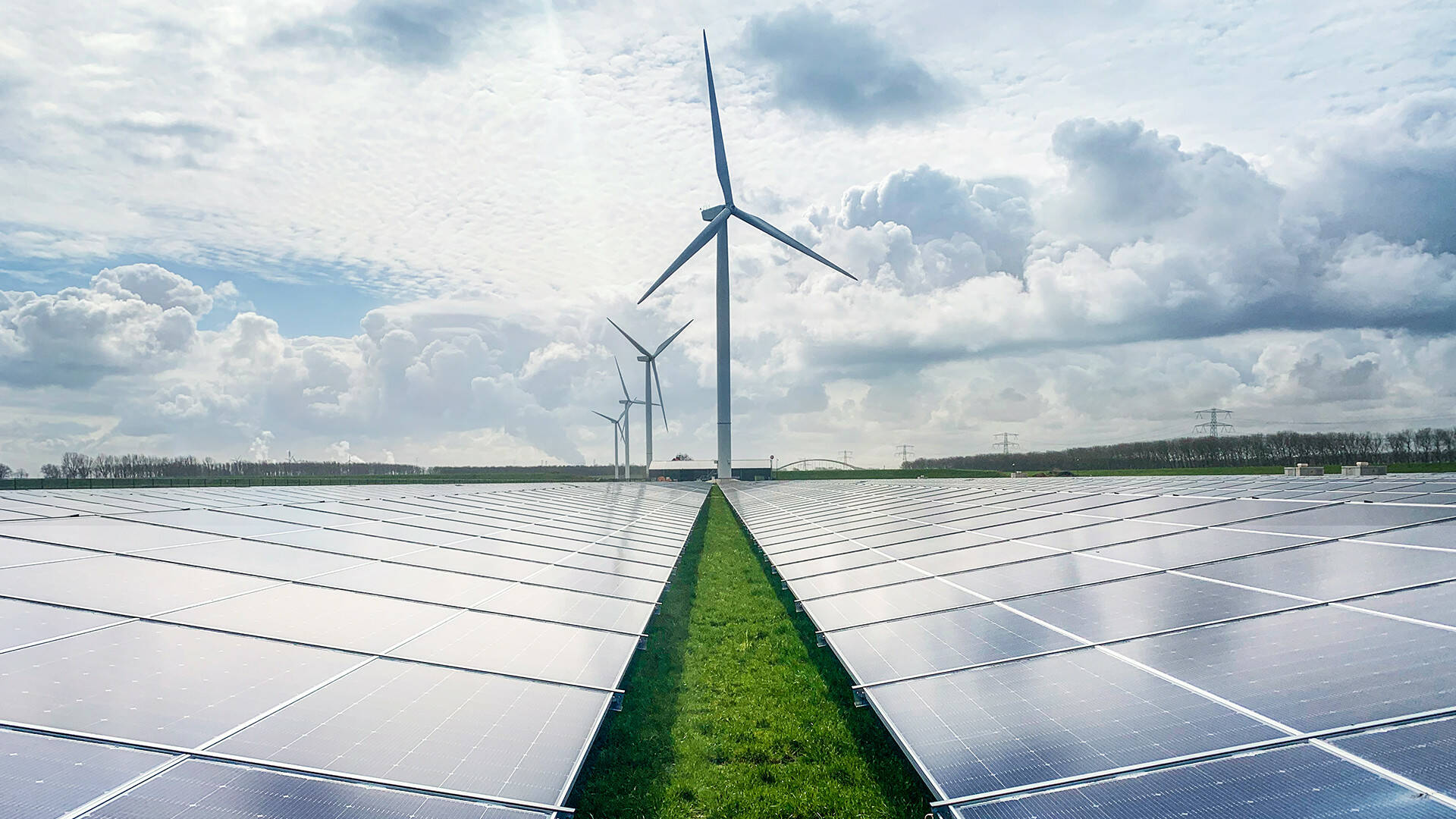
Innovating city
and construction logistics with, BREYTNER, Europe’s first zero emission transport company
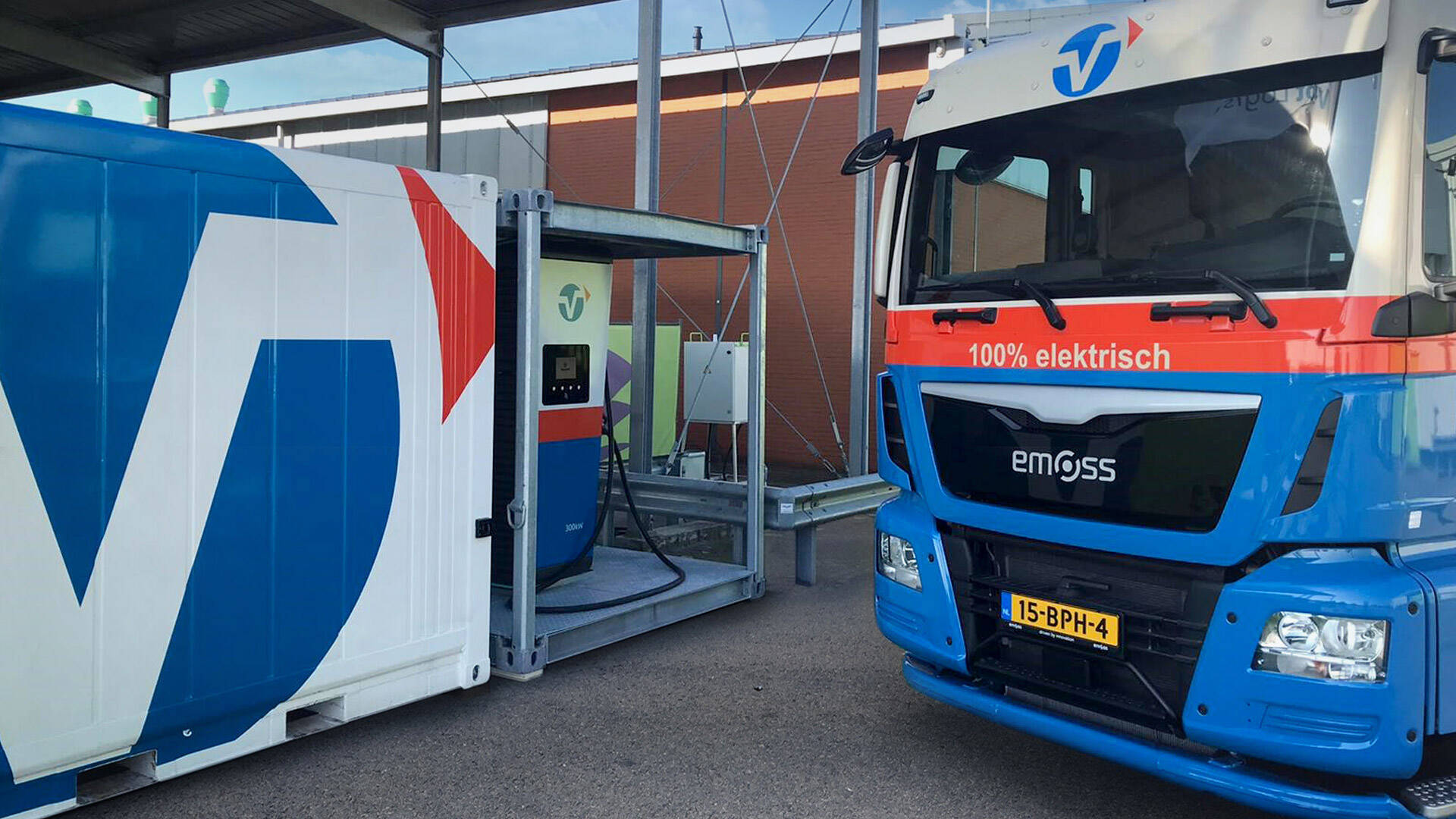


Go to next article

Go back
scroll down

MB: The fast charger can be installed on site in combination with an Alfen mobile energy storage system. This energy storage system, a container filled with 442kWh of battery capacity, is an extra power unit that both supports charging the electric truck and can also be used for further electrification on the construction site - replacing diesel generators to reduce neighbourhood impact form fumes and noise. It is the first of its kind in Europe, it is compact, and has both 32 and 63Amp connections which offers locational flexibility for charging it, because 63A is not available everywhere.
ND: Vlot Logistics collaborated with Alfen on the development of this mobile fast charging combination. Alfen’s mobile energy storage system was, on Alfen’s advice, combined with a Lanova mobile fast charging station specially developed for this purpose.
Alfen also developed a skid for the compact 300kW fast chargers which makes them easy to move and protects them against any external damage. The fast charger also offers active load management so the truck can be charged in periods of low electricity demand.
You’ve mentioned Alfen’s integrated mobile battery and charging solution. Can you tell us more about why you chose it?
ND: Vlot purchased its first electric heavy goods vehicle in 2016. It’s not always cost competitive with diesel and so we run it alongside conventional trucks for now, because customers must be prepared to pay more for it. The full switch will come though and we wanted to be ahead of the game.
MB: There are already organisations that are willing to pay more for EV, mostly to position for marketing purposes. While there are some subsidies to further stimulate this, it’s not enough to have huge impact at present.
A current heavy duty electric truck has an autonomous range of 150 km. To support a huge volume of electric trucks would therefore require a range of fast chargers across the country. While there are already fast chargers at gas stations, there are interoperability issues with trucks and they are typically physically designed for passenger vehicles so are prohibitive for heavy goods vehicles. Additionally, when you look at the business case, it makes most sense to charge the truck when it is already stationery, for example for loading or unloading the goods, rather than add in separate charging time at a gas station which takes 45 minutes to an hour.
The integrated mobile battery and charging solution Alfen has developed for Vlot Logistics offers us flexibility about charging locations and this, in turn, will help us gain knowledge about permanent charging infrastructure requirements. Customers are also keen to experiment with it, which offers opportunities, but they are not scaling up yet. Piloting has been going on since 2011 and it’s now clear that it is (technically) possible. We just need regulatory pressure which we consider will start to drive real action in the second half of this decade.
ND: Further development of the vehicles will also help of course - bigger batteries with higher energy density.
What opportunities and challenges are associated with electrifying a fleet of trucks and cranes?
What drove the setup of BREYTNER and are electric trucks the only option?
MB: I live in Rotterdam, where air quality could be a lot better. It has been so bad in the city that residents brought a lawsuit against the municipality and the verdict resulted in reduced accessibility for heavy transport. The city already has electric buses, passenger EVs are on the rise and, as a person with experience of a family transport business, I could see no reason why electric could not also be part of a solution for heavier transport. So, the reasons for starting the business were part personal motivation, part market opportunity. Unfortunately, Rotterdam’s deadline for being totally emission-free has slipped back from 2020 to 2025, with a transitional arrangement and hard deadline now of 2030, which does create less urgency but we’ll get there eventually.
Electric isn’t the only solution. We are an emission-free transport business and have also experimented with hydrogen but it is at least 5 years away from being market ready for the transportation business. An electric truck already costs twice as much as a conventional truck but the scarcity and price of green hydrogen would make the operational costs for a hydrogen truck completely unviable right now - and it doesn’t offer anything more than electric because its range is the same. Perhaps that will change one day, in which case we would reconsider investing but, for now, we are focused more on electric.
ND: Fuelling with fossil-free diesel, HVO100, is another option but I think it will be a temporary solution. There is also innovation happening in processes, for example, with goods delivered by conventional trucks to the edge of city hubs and the journey from there to final city destination taking place by electric transport or cargo bike. We are already active in this area and interest is growing very fast.
“ I could see no reason why electric could not also be part of a solution for heavier transport ”
What does the transport and logistics industry look like in the Netherlands?
MB: The transport sector has wafer thin margins, typically between 0-3% and so success is all about costs and scale. While there are about 15,000 really small companies, there are
only a few hundred with scale and so innovation is limited because very few have the budget for it. Every optimisation that is realised results in a cost reduction to the customer.
Can you please introduce yourselves and explain the relationship between the two companies?
MB: Obviously transport is in my blood because I was born into a transport family. Baartmans and Vlot Logistics already had a collaborative relationship and it was a combination of that, personal motivations and market opportunity that resulted in the establishment of BREYTNER in 2016. I am one of three partners, the others being Vlot’s owner and my brother.
While most transportation and logistics companies are actively working towards emission reductions, BREYTNER is effectively already there because we were specifically set up to only offer emission-free transport services.
ND: I have worked in logistics for 10 years in total, the last 5 at Vlot Logistics. Amongst other things, in my role I am responsible for all communication activities related to electric transport.
Vlot Logistics has a 125-year history in transportation and our owner also has a share in BREYTNER. The companies complement each other well and we work together very closely on new proposals and potential opportunities. BREYTNER’s primary focus is on the commercial side – conceptual innovation, networking and generating potential opportunities. Vlot ultimately carries out the operational transportation using electric trucks.
MB: As a pure zero emissions company, in a very early-stage market, BREYTNER has to be experimental - and much of what is possible is reliant on subsidies. Once we have proven that certain things are possible and start to gain traction, Vlot will also chase the opportunity. Ultimately, this means we can both apply for subsidy support which, inevitably, means that we attain higher levels overall and then collaborate to put more electric trucks on the road which is our primary goal.

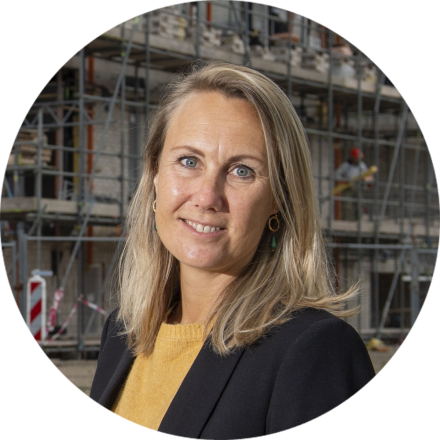
An interview with Marie-José Baartmans, Director BREYTNER, & Nathan Dane, Sales and Marketing Manager
at Vlot Logistics
Founded in 2016, BREYTNER is Europe’s first zero emissions transportation company. It is the result of a collaboration between two very experienced transport and logistics specialists, Baartmans and Vlot Logistics. Taking a collaborative approach, BREYTNER works with a range of partners to accelerate a shift towards the use of emission-free heavy-duty vehicles for a range of B2B and B2C logistics purposes, with particular focus on urban distribution and the construction industry, as both are heavy polluters of cities. It also operates as a test lab, testing zero emission vehicles, technologies and concepts and advises organisations on how to make their logistics more sustainable.
We spoke to BREYTNER Director, Marie-José Baartmans, and Vlot Logistics Sales and Marketing Manager, Nathan Dane, about what drove the creation of the new company, their vision of the future and the opportunities and barriers to getting there.
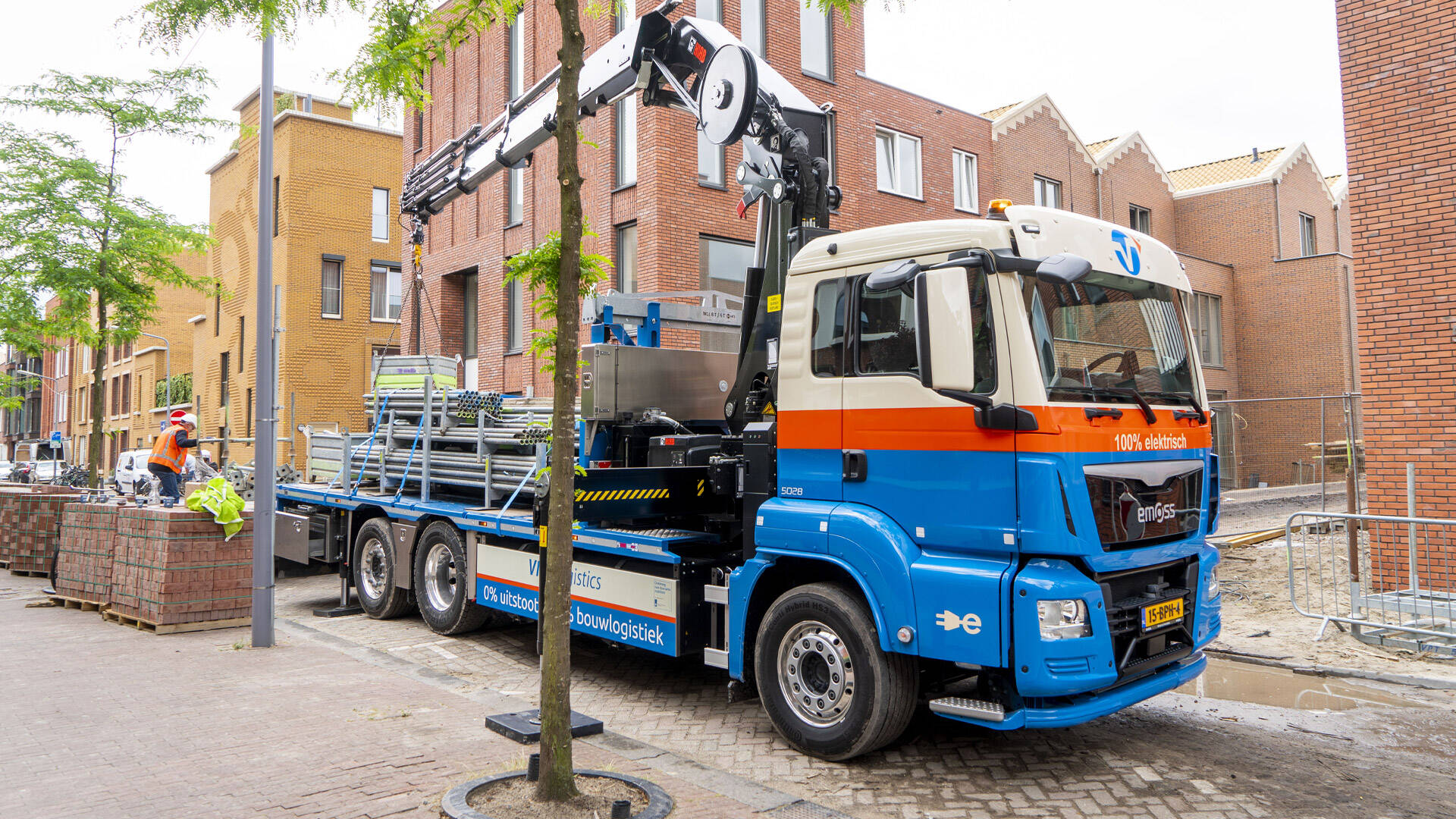

Innovating city
and construction logistics with, BREYTNER, Europe’s first zero emission transport company



Go to next article

Go back
MB: The fast charger can be installed on site in combination with an Alfen mobile energy storage system. This energy storage system, a container filled with 442kWh of battery capacity, is an extra power unit that both supports charging the electric truck and can also be used for further electrification on the construction site - replacing diesel generators to reduce neighbourhood impact form fumes and noise. It is the first of its kind in Europe, it is compact, and has both 32 and 63Amp connections which offers locational flexibility for charging it, because 63A is not available everywhere.
ND: Vlot Logistics collaborated with Alfen on the development of this mobile fast charging combination. Alfen’s mobile energy storage system was, on Alfen’s advice, combined with a Lanova mobile fast charging station specially developed for this purpose.
Alfen also developed a skid for the compact 300kW fast chargers which makes them easy to move and protects them against any external damage. The fast charger also offers active load management so the truck can be charged in periods of low electricity demand.
You’ve mentioned Alfen’s integrated mobile battery and charging solution. Can you tell us more about why you chose it?
ND: Vlot purchased its first electric heavy goods vehicle in 2016. It’s not always cost competitive with diesel and so we run it alongside conventional trucks for now, because customers must be prepared to pay more for it. The full switch will come though and we wanted to be ahead of the game.
MB: There are already organisations that are willing to pay more for EV, mostly to position for marketing purposes. While there are some subsidies to further stimulate this, it’s not enough to have huge impact at present.
A current heavy duty electric truck has an autonomous range of 150 km. To support a huge volume of electric trucks would therefore require a range of fast chargers across the country. While there are already fast chargers at gas stations, there are interoperability issues with trucks and they are typically physically designed for passenger vehicles so are prohibitive for heavy goods vehicles. Additionally, when you look at the business case, it makes most sense to charge the truck when it is already stationery, for example for loading or unloading the goods, rather than add in separate charging time at a gas station which takes 45 minutes to an hour.
The integrated mobile battery and charging solution Alfen has developed for Vlot Logistics offers us flexibility about charging locations and this, in turn, will help us gain knowledge about permanent charging infrastructure requirements. Customers are also keen to experiment with it, which offers opportunities, but they are not scaling up yet. Piloting has been going on since 2011 and it’s now clear that it is (technically) possible. We just need regulatory pressure which we consider will start to drive real action in the second half of this decade.
ND: Further development of the vehicles will also help of course - bigger batteries with higher energy density.
What opportunities and challenges are associated with electrifying a fleet of trucks and cranes?
What drove the setup of BREYTNER and are electric trucks the only option?
MB: I live in Rotterdam, where air quality could be a lot better. It has been so bad in the city that residents brought a lawsuit against the municipality and the verdict resulted in reduced accessibility for heavy transport. The city already has electric buses, passenger EVs are on the rise and, as a person with experience of a family transport business, I could see no reason why electric could not also be part of a solution for heavier transport. So, the reasons for starting the business were part personal motivation, part market opportunity. Unfortunately, Rotterdam’s deadline for being totally emission-free has slipped back from 2020 to 2025, with a transitional arrangement and hard deadline now of 2030, which does create less urgency but we’ll get there eventually.
Electric isn’t the only solution. We are an emission-free transport business and have also experimented with hydrogen but it is at least 5 years away from being market ready for the transportation business. An electric truck already costs twice as much as a conventional truck but the scarcity and price of green hydrogen would make the operational costs for a hydrogen truck completely unviable right now - and it doesn’t offer anything more than electric because its range is the same. Perhaps that will change one day, in which case we would reconsider investing but, for now, we are focused more on electric.
ND: Fuelling with fossil-free diesel, HVO100, is another option but I think it will be a temporary solution. There is also innovation happening in processes, for example, with goods delivered by conventional trucks to the edge of city hubs and the journey from there to final city destination taking place by electric transport or cargo bike. We are already active in this area and interest is growing very fast.

“ I could see no reason why electric could not also be part of a solution for heavier transport ”
What does the transport and logistics industry look like in the Netherlands?
MB: The transport sector has wafer thin margins, typically between 0-3% and so success is all about costs and scale. While there are about 15,000 really small companies, there are only a few hundred with scale and so innovation is limited because very few have the budget for it. Every optimisation that is realised results in a cost reduction to the customer.
Can you please introduce yourselves and explain the relationship between the two companies?
MB: Obviously transport is in my blood because I was born into a transport family. Baartmans and Vlot Logistics already had a collaborative relationship and it was a combination of that, personal motivations and market opportunity that resulted in the establishment of BREYTNER in 2016. I am one of three partners, the others being Vlot’s owner and my brother.
While most transportation and logistics companies are actively working towards emission reductions, BREYTNER is effectively already there because we were specifically set up to only offer emission-free transport services.
ND: I have worked in logistics for 10 years in total, the last 5 at Vlot Logistics. Amongst other things, in my role I am responsible for all communication activities related to electric transport.
Vlot Logistics has a 125-year history in transportation and our owner also has a share in BREYTNER. The companies complement each other well and we work together very closely on new proposals and potential opportunities. BREYTNER’s primary focus is on the commercial side – conceptual innovation, networking and generating potential opportunities. Vlot ultimately carries out the operational transportation using electric trucks.
MB: As a pure zero emissions company, in a very early-stage market, BREYTNER has to be experimental - and much of what is possible is reliant on subsidies. Once we have proven that certain things are possible and start to gain traction, Vlot will also chase the opportunity. Ultimately, this means we can both apply for subsidy support which, inevitably, means that we attain higher levels overall and then collaborate to put more electric trucks on the road which is our primary goal.

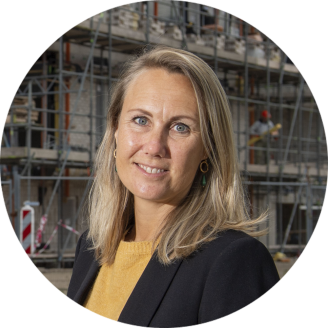
An interview with Marie-José Baartmans, Director BREYTNER, & Nathan Dane, Sales and Marketing Manager
at Vlot Logistics
Founded in 2016, BREYTNER is Europe’s first zero emissions transportation company. It is the result of a collaboration between two very experienced transport and logistics specialists, Baartmans and Vlot Logistics. Taking a collaborative approach, BREYTNER works with a range of partners to accelerate a shift towards the use of emission-free heavy-duty vehicles for a range of B2B and B2C logistics purposes, with particular focus on urban distribution and the construction industry, as both are heavy polluters of cities. It also operates as a test lab, testing zero emission vehicles, technologies and concepts and advises organisations on how to make their logistics more sustainable.
We spoke to BREYTNER Director, Marie-José Baartmans, and Vlot Logistics Sales and Marketing Manager, Nathan Dane, about what drove the creation of the new company, their vision of the future and the opportunities and barriers to getting there.




